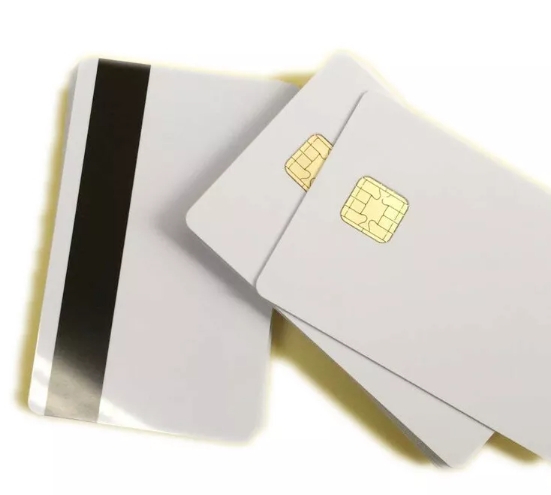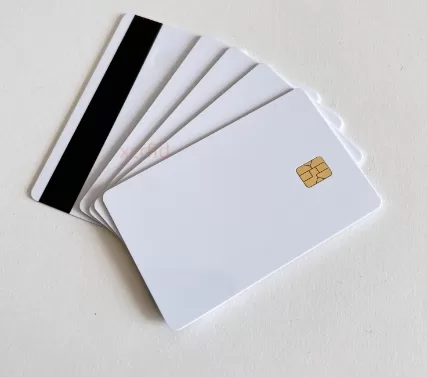
How to personalize a J3R150 EMV card with customer data?
The J3R150 EMV card is a reliable and high-performance smart card solution for various industries that want to provide advanced payment and identification technology. Especially in sectors such as banking, retail, and healthcare, this card needs to be personalized when using customer data, as customer-specific information is essential for smooth and secure transactions. In this article, we will share with you how to personalize the J3R150 EMV card when using customer data and explain the steps, tools, and techniques required to create a full-featured, tailored solution.
J3R150 EMV Card and Why It Matters
The J3R150 is an EMV (Europay, MasterCard, and Visa) smart card that integrates a secure microprocessor chip capable of processing and storing customer data. You can use them in applications such as secure payment systems, access control, and identification. Generally speaking, industries such as banking, healthcare, and retail that require a high level of security usually choose EMV cards. Personalizing the J3R150 EMV card means embedding customer-specific data such as name, account number, security code, and encryption keys. This personalized information enables businesses to offer customized services, including secure payment options, loyalty programs, and access control mechanisms. The microprocessor in the card ensures the integrity of the stored data and encrypts it to prevent unauthorized access.

The step-by-step process for personalizing a J3R150 EMV card
Personalizing a J3R150 EMV card requires dedicated equipment, software, and secure data management. The process starts with data collection, followed by encryption, card encoding, and final verification.
Data Collection: The first step in personalizing a J3R150 EMV card is to collect customer data. This includes personal information such as customer name, account number, ID number, and any relevant security credentials. Depending on the application, you can add additional information, such as biometric data or a PIN.
Data Encryption: Once you collect the data, you must securely encrypt it to prevent unauthorized access. The chip of the J3R150 card supports encryption algorithms that protect sensitive information during storage and transmission.
Card Encoding: After encryption, the data is encoded onto the chip of the EMV card using dedicated equipment. This step involves writing static and dynamic data onto the card. The J3R150 EMV card supports both contact and contactless operation, which allows users to utilize it with a wide range of terminals and devices.
Validation and testing: The final step is to verify that the card was correctly personalized and that the data was securely written. This involves testing the card on the target system to ensure that it operates as expected. Validation ensures that the card will operate reliably in real-world usage scenarios.
-jpg.webp)
The role of data security in personalization
When personalizing the J3R150 EMV card, we need to consider data security. Industries such as banking, retail, and healthcare handle sensitive customer information every day, making the need for secure data management critical. When personalizing EMV cards, we implement strong encryption standards to protect customer data during the personalization process and throughout the life of the card. Encryption protects data such as account numbers and security credentials from being intercepted or altered by unauthorized parties. In addition, the J3R150 EMV card includes secure key management capabilities, allowing companies to manage encryption keys securely and efficiently.
-jpg.webp)
Tokenization is another layer of security we take into account during the personalization process of the J3R150 EMV card. Tokenization replaces sensitive data with unique random tags for transaction processing without exposing the underlying data. Dcco uses secure data management technology to protect the personalized data on the J3R150 EMV card at all times.
Industry-Specific Applications for Personalization
Different industries have unique requirements for J3R150 EMV card personalization, and their flexibility enables it to be tailored for a variety of applications, from secure payments to access control and identification.
Banking and Financial Services: You can personalize J3R150 EMV cards with customer account information, PINs, and encryption keys to enable secure transactions at ATMs, point-of-sale (POS) terminals, and online platforms. The security features of the J3R150 card help prevent card cloning and fraud.
Retail and Loyalty Programs: Retailers use personalized J3R150 EMV cards for customer loyalty programs, enabling secure points accumulation and redemption during transactions. By embedding customer profiles, reward points, and purchase history on the card, retailers can offer personalized discounts and rewards, thereby increasing customer engagement.
Healthcare: In healthcare, providers use personalized J3R150 EMV cards to store patient information, insurance details, and access credentials to healthcare facilities. Personalizing these cards with secure patient data ensures healthcare providers have fast and accurate access to patient records while protecting sensitive medical information.
-jpg.webp)
Tools and Software
Specialized tools and software personalize J3R150 EMV cards effectively. By leveraging these tools, we securely embed customer data in the card’s chip, ensuring that the card functions properly in its intended system.
Card Issuance Software: Allows businesses to manage the data personalization process, including the collection, encryption, and encoding of customer information. They provide user-friendly interfaces for importing customer data, applying encryption algorithms, and managing encryption keys.
EMV Card Printer: An EMV card printer encodes data onto the card’s chip while printing customer-specific information onto the card’s surface. This printer’s encoding module writes encrypted data to the chip, ensuring that the card is ready for use after personalization.
Key Management System: A KMS is responsible for creating, storing, and distributing encryption keys used to encrypt and authenticate customer data. By integrating KMS with your card issuance software, you can ensure that the personalization data on the card remains secure throughout the personalization process and beyond.
The Importance of Personalization
J3R150 EMV card personalization is an essential process for businesses across all industries. By implementing the right personalization process, Dcco can provide tailored security solutions that protect sensitive information while enhancing the customer experience. By leveraging the latest tools, software, and best practices, you can ensure that you get a practical and highly secure personalization solution.


